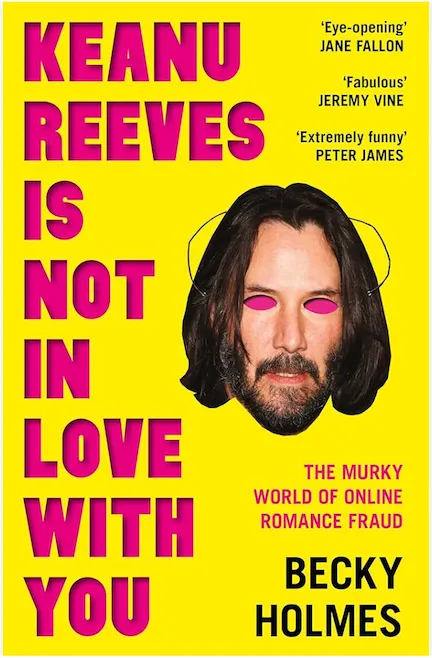

Netflix specials such as “The Tinder Swindler” and other headlines can grab our attention. However, online romance fraud is often misunderstood and underreported. There is quite a range, from low to high sophistication, with this type of fraud. When speaking with victims of online romance fraud, some commonalities emerge. And there are still quite a few misperceptions about this type of fraud. We need to change the narrative in order to assist victims.
The Wide Spectrum of Romance Fraud: From Mass Market to a Targeted Approach
There’s a wide range of scams that take place when dealing with romance fraud. You have fraudsters who come into your Twitter or Instagram inboxes who don’t put much time or effort into it. They send out blanket messages to thousands of women, hoping to get a few bites. It’s a mass market, low-sophistication scam that’s all about the numbers. These fraudsters usually get very low payouts, and their payoffs are often in gift cards, PayPal or bank transfers and sometimes Bitcoin.
Then, on the higher end of the spectrum are things such as the horribly-named Pig Butchering scam. It’s a type of romance fraud that is mixed in with cryptocurrency fraud as well. The fraudsters take their time to build a relationship and make the victim feel as though they have something ‘real.’ Eventually, they drop into the conversation and say that they are using a trading platform. They suggest that the victim also begins trading. These are extremely sophisticated fake trading platforms. You can see your money, remove money, and put more in. Even tech-savvy investors have lost money because the platforms seem legitimate. This is a very high level of network fraud, and it can take a long time, but the payoff is much greater.
Copy, Paste: Commonalities in Romance Scams
Whether you’re a financial institution trying to better understand the red flags associated with online romance fraud or someone wanting to protect a loved one, there are definite patterns when it comes to this type of fraud.
One thing romance fraudsters need is a story, and there are commonalities. Sometimes, it’s a parent needing money for their son’s schooling. Other times, it’s someone with elderly parents or sick siblings needing money for medical bills. The stories are often similar, with just little details changed.
The fraudster will also usually claim to have a job that provides a legitimate reason for not being able to meet the victim and why they may not be able to access their money. Examples include being in the army, a pilot, on an oil rig, or perhaps a doctor or surgeon working abroad.
There is some geographical centralization where certain types of fraud emerge. A large proportion of romance frauds come from Nigeria and Ghana. The pig butchering scam, although it originated in China, typically runs out of Southeast Asia. Romance scams end up funding other crimes as well, such as guns, drugs, prostitution, and people trafficking. Many think it’s very niche, and just a case of some silly women sending money to men out of loneliness, but it is so much more. It is indescribably big business.
Years ago, the most common way to move money was through Western Union transfers. Today, cryptocurrency is massive, as is the sending of gift cards such as iTunes, Amazon or Steam.
Anyone Can Be a Victim of Romance Fraud: Playing on Human Emotions
Romance fraud plays on a very human need. As humans, even the most hardened of us, we all love, and we all want to be loved. Romance fraud plays on that need more than any other type of fraud, which is why it is so difficult and so complex. You can’t put a system in place to keep someone from wanting to be in love. No matter where it is in the world, no matter what systems they’re using, whether it’s mass marketing or very targeted, it all plays on that very human emotion.
Human nature also defaults to people being truthful. You don’t have to be a vulnerable person, but you can have a moment of vulnerability. We have perspectives on who may or may not be susceptible to this type of fraud. It’s more about a moment in time than a certain profile of a person. Anyone can be a victim. Unfortunately, when people are victims, especially if they feel as though they should have known better, they are less likely to come forward and report the crime.
The perception is still that someone must be stupid to fall for these scams. You see more warnings going up around Valentine’s Day, and dating sites will warn users. However, these are not effective. More needs to be done to educate people. Whenever you see a stat on the numbers of romance fraud scams or dollars lost, you can pretty much times it by at least ten. People don’t want to admit that they have done something that society deems foolish. People are embarrassed, ashamed, and concerned about how others will react.
A Call to Arms: Changing the Narrative Around Romance Fraud
There is no other crime apart from fraud that we refer to a victim as “falling for it.” You don’t say something “fell for” a robbery. Or someone “fell for” an assault. By saying that someone falls for something, we are putting the onus on that victim and saying they walked into it. Romance fraud is a crime like any other, and it should be treated with the same respect. Victims of fraud should not be treated with derision. When we make fun of people, that is the way to ensure that people won’t report it and we never learn the true extent of the crime.
A variety of institutions should collectively work to reframe the situation before we expect it to change. Social media companies need to do so much more. Financial institutions should educate customers and their staff. Transaction monitoring should be flagging suspicious money movements and anomalous behavior. They should train employees to understand the nuances of romance fraud, what to look for, and how to speak to a victim. Employees should do what they can to make victims feel comfortable and sympathetic so we can encourage more people to come forward.
If you’re interested in learning more about romance fraud, check out my book “Keanu Reeves is Not in Love with You: the Murky World of Online Romance Fraud,” available where books are sold. You can hear the full discussion from the Fraud Fighter Virtual Summit in this session recording.
Subscribe to our Blog!
Please fill out the form below:



%20(3).webp)